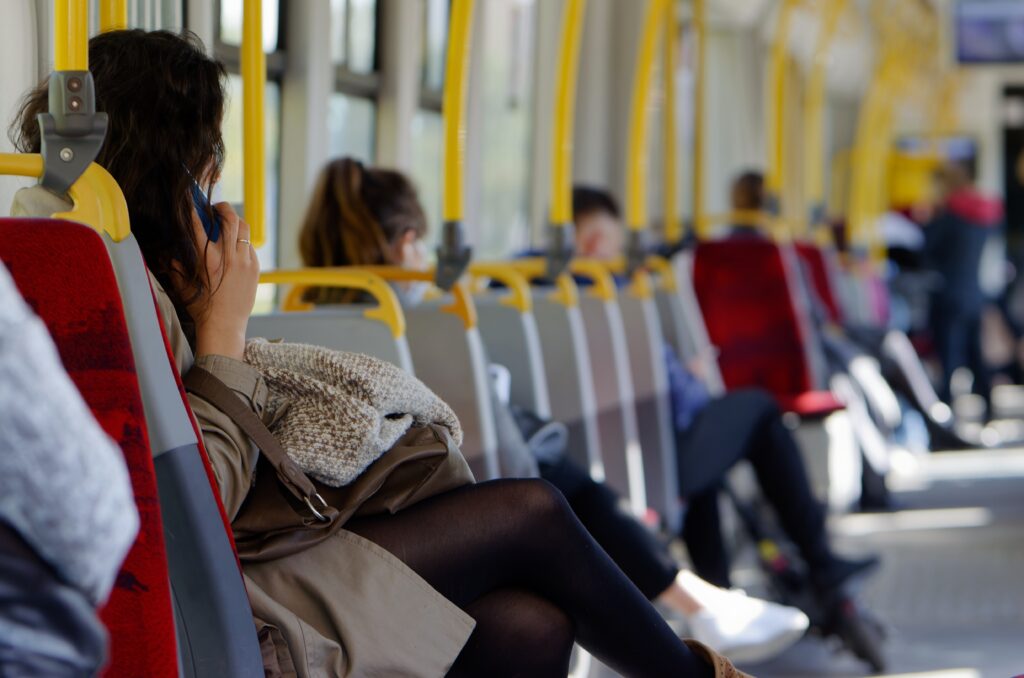Fear of crime and threats to personal safety come second to reliability and accessibility as barriers to using public transit. Like many aspects of daily life, public transit is a gendered issue. Safety on public transit is a significant issue for women and girls. Research shows that 85% of women in the UK think about their safety when planning and making a journey.

A recent report from Transport Scotland, Women and Girls’ Safety on Public Transport, found that “women and girls are being forced to adapt their own behaviour and change their travel habits to feel safe on public transport”.
Similarly, in the US, a survey in 2018 showed that more than half (54%) of female respondents are concerned about being harassed while using public transportation, compared to only 20% of male respondents. These findings are supported by research conducted worldwide, and they impact the use of public transit, as women make up over half of all transit users in the US.
The survey in Scotland made several recommendations, including “raising awareness of the technology that is currently available to assist women and girls, and explore means of making this more accessible to all, including raising awareness of the immediate and intermediate support that is available to those who feel vulnerable at any point before, during or after public transport journeys.”
The development of Kuba’s mobility platform has always put the users first . It is the driving principle behind our mobile apps that they should make travelling on public transport safer, more accessible and easier to plan.
Real-time rider information
Women mainly use buses and trams and often avoid traveling after dark. Risks of delays and cancellations, which mean that they may be in a strange and dark place, can often put women off traveling on public transit in the evenings.
Our mobility app offers real-time rider information, rider alerts, and push notifications about service changes, allowing women to anticipate potentially unsafe situations and make alternative travel arrangements. The option to plan and book your entire journey in advance will enable women to access safe and easy-to-use first/last-mile services, adding reassurance for a safe trip home.
Reporting real-time incidents
Women have concerns and experiences of being targets of inappropriate sexual comments and unwanted attention from male passengers. There is also the fear of being followed by strangers and situations which can escalate. Integrations such as Elerts See Say® allow riders to report real-time incidents such as crimes, damage to stations and other safety and security concerns directly through the app. There is also the possibility of uploading photos and videos.
Fare capping
Although not directly related to safety, having fare capping functionality within our mobile apps also makes public transit more viable for women.
Sadly, the reality is that women are still more often in charge of household and childcare duties in a family, so they have very different travel patterns from men. Their days may differ significantly, meaning traditional weekly or monthly bus passes might not be the best option financially. They also make shorter but more trips in general, often ‘trip-chaining’ activities like dropping children off at school or other activities and running errands.
Fare caps bring automatic value to riders ‘on the go’ by rewarding frequent travel within a given period (day, week or month). Once a fare cap is hit, further travel during the fare cap window is free. The concept is similar to the idea of buying a period pass – except there is no need to plan ahead, or to budget for paying a large sum upfront.
Our mobility solution helps women and girls feel safe and secure when using public transit. It raises awareness of the technology available to assist them, such as real-time information and reporting, and makes it accessible. Safe and easy-to-use public transit is vital for everyone, and our app is the perfect solution for a better travel experience.


